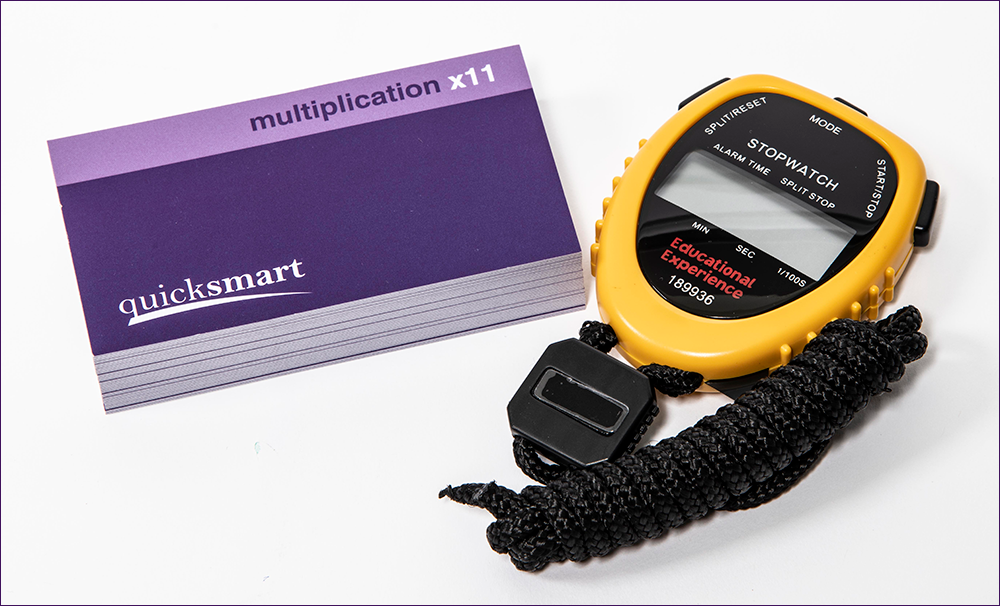Purpose of the Project
The prime purpose of the QuickSmart program is to reverse the trend of ongoing poor academic performance for students who have been struggling at school for several years and who are caught in a cycle of continued failure. These targeted students experience significant and sustained learning difficulties in basic mathematics and/or literacy, and have shown themselves to be resistant to improvement despite attempts to overcome their learning problems. For a variety of reasons these students have been unable to draw lasting benefits from other in-class and withdrawal instructional activities.
In addition, the QuickSmart professional learning program is designed for classroom teachers, special needs support teachers, and teacher support staff to learn how to work with, and significantly improve, the learning outcomes in basic mathematics and literacy skills of under-achieving students in the middle years of schooling. The program offers professional learning and support for teachers to work in a small class instructional setting with two students using a specially constructed teaching program supported by extensive material and computer-based resources.
Overall, the QuickSmart intervention and research program attempts to fill some of the identified gaps in research and practice regarding middle-school students with persistent learning difficulties.
Key Components of the Project
Some key components of the QuickSmart program are:
- A practice routine of 30 minutes of on-task time, 3 times per week.
- Structured and time-efficient lessons which have a set sequence of activities.
- Motivating and timed practice activities aimed at speedy recall of known facts.
- Individualised instruction, ensured by assessment and instruction forming a continuous purposeful cycle.
- Strategy instruction is ongoing, explicit and individually tailored to students’ needs.
- Opportunities for students to self-monitor, and to receive and generate immediate feedback about their performance.
- Instruction that ensures the students experience success by providing regular and predictable learning sequences: students practise and improve on what they already know, and then learn and practise new knowledge during the lesson.
- Content is explicitly linked to current classroom curriculum as well as to real-life settings where possible.
- Reflective, metacognitive questioning and responding are incorporated into lessons – for example, QuickSmart instructors ask questions such as, “How did you work that out?”, “Why are you so sure of your answer?”. This focus of instruction can assist students to develop the language to describe their thinking.
- The use of stop watches, hourglass timers, and wall clocks assist students to ‘externalise’ time. These devices encourage students to become more aware of their sense of time and improve their ability to estimate time.
- Close collaboration with parents, teachers and principals of participating schools. Stakeholders are fully informed about the project and involved in its implementation and evaluation.
- A long term and consistent intervention approach which provides practice opportunities that will bring students ‘up to speed’ so they can share ‘the fast track’ with their peers.
- Parent participation through meetings, information, involvement and workshops.
Success factors of the QuickSmart Numeracy and Literacy intervention program
Here is a link to an advertorial for Education Review written in 2019 by SiMERR’s former QuickSmart Operations Officer, Sophie Westermarck.
The Role of Automaticity and Working Memory Capacity in Learning
Students with learning difficulties are slowed down by their lack of automaticity with lower-order academic skills such as recall of basic number facts and word recognition. Automaticity is inferred when such lower-order processes become fast, routine, and independent, and require only small amounts of cognitive resources.
The following theoretical and pragmatic reasons support the importance of developing automatic performance of low-level academic tasks and recall of basic facts in reading and numeracy:
- cognitive capacity (or ‘working memory’) in humans is limited;
- once students’ ability to perform basic academic tasks and recall basic facts becomes truly automatic, they cannot help but recall this information and have it available for use in other settings and on more complex tasks;
- the ability to recall information quickly is not subject to conscious control and therefore uses minimal cognitive capacity; and
- automatic performance of low-level academic tasks allows for small decreases in time to accrue in undertaking subtasks, freeing up working memory.
- Once students have sound conceptual understandings, developing automaticity in basic academic skills can enable students with learning difficulties to use their working memory resources more efficiently, so that they are better able to engage with the more interesting aspects of learning – the novel concepts, complex content and rich tasks that usually require higher order thinking and learning skills.
The QuickSmart numeracy and literacy sessions include guided and independent practice activities (such as flash cards and speed sheets) that aim to develop the learner’s ability to recall basic number facts automatically. Automaticity is reinforced by the use of appropriate games and by the routine assessment of the speed and accuracy with which the basic facts are recalled.
QuickSmart in the Community
- QuickSmart is also provided in a range of adult contexts, particularly amongst disadvantaged groups. Correctional centres, remote Indigenous communities and employer groups recognise the need for a foundation in basic numeracy and literacy for their people to develop much needed employment and life skills.
- QuickSmart in these adult contexts has achieved results matching QuickSmart in schools and produced many wonderful personal stories. Learners not only markedly improve their numeracy and literacy but also commonly report a greater sense of being able to learn and the importance of learning and a desire to support others in their communities and families to learn.
- Please email quicksmart@une.edu.au for more information

